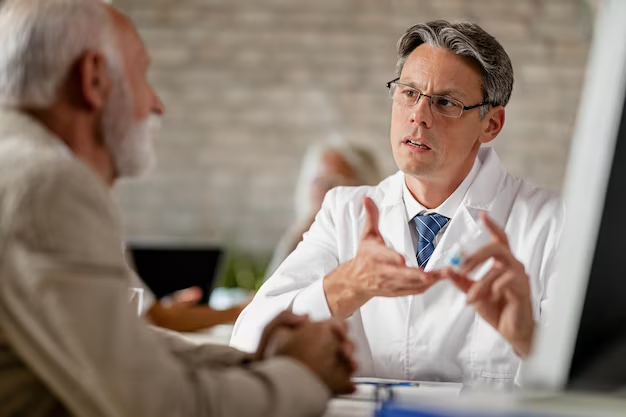Navigating Parkinson’s Disease: Is a Cure on the Horizon?
When faced with the diagnosis of Parkinson’s Disease (PD), the most pressing question for many is: Is there a cure? While a definitive cure remains elusive, understanding the nature of the disease, ongoing research, and existing management strategies can offer hope and clarity.
Understanding Parkinson’s Disease
Parkinson's Disease is a progressive neurodegenerative disorder primarily affecting motor function. It's marked by the loss of dopamine-producing neurons in the brain. Symptoms gradually worsen over time, manifesting as tremors, stiffness, bradykinesia (slowness of movement), and postural instability.
Key Causes and Risk Factors
- Genetic Factors: Certain genetic mutations increase the risk of Parkinson’s.
- Environmental Influences: Exposure to toxins like pesticides and heavy metals.
- Age: Risk increases significantly after age 60, though young-onset cases exist.
- Gender: Men are statistically more prone than women.
Current Treatment Options
While there's no cure yet, several treatments aim to manage symptoms effectively.
Medication Management
- Levodopa: Converts to dopamine in the brain, improving motor symptoms.
- Dopamine Agonists: Mimic dopamine effects in the brain.
- MAO-B Inhibitors: Block dopamine breakdown, enhancing its availability.
Surgical Interventions
- Deep Brain Stimulation (DBS): Electrodes implanted in the brain to regulate abnormal impulses.
- Lesioning Surgery: Targeted destruction of brain tissue to reduce symptoms.
Complementary Therapies
- Physical Therapy: Enhances mobility and balance.
- Occupational Therapy: Adapts daily tasks for easier management.
- Speech Therapy: Addresses communication and swallowing disorders.
Cutting-Edge Research Directions
Genetic Research
With notable genetic links to Parkinson’s, genetic therapy shows promise. Scientists are investigating ways to correct genetic mutations implicated in the disease.
Stem Cell Therapy
Stem cell research could vastly change the landscape, with the potential to replace lost neurons. However, this avenue remains in the experimental stage.
Neuroprotective Strategies
Research is increasingly focused on neuroprotective treatments that could slow or stop neuron degeneration. This proactive approach aims to prevent the onset of symptoms rather than merely manage them.
Living with Parkinson’s: Practical Tips
While navigating Parkinson's can be challenging, several practical steps can enhance quality of life.
Diet and Nutrition
- Antioxidant-Rich Foods: Berries, nuts, and leafy greens combat oxidative stress.
- Omega-3 Fatty Acids: Found in fish and flaxseeds, they support brain health.
- Hydration: Essential for overall health and aids medication efficacy.
Regular Exercise
Engage in exercises like walking, resistance training, and Tai Chi to maintain muscle strength and improve balance.
Mental Health Support
- Mindfulness and Meditation: Reduce stress and anxiety.
- Support Groups: Connecting with others provides emotional relief and shared understanding.
Exploring the Future: Is Hope on the Horizon?
The quest for a Parkinson's cure isn't just a medical challenge but a mission of hope shared by researchers, patients, and caregivers worldwide.
Promising Trials and Innovations
Emerging therapies include:
- Gene Therapy Trials: Aim to introduce healthy genes to replace faulty ones.
- New Drug Developments: Focus on non-dopaminergic mechanisms to manage symptoms.
- Wearable Technology: Devices to monitor symptoms in real-time, aiding personalized treatment.
Community and Advocacy
Supportive networks and advocacy groups play a critical role, driving awareness and funding for research. Patient involvement in clinical trials also accelerates the discovery process.
Key Takeaways
While a cure for Parkinson’s Disease remains on the horizon, advancements in research, treatment, and support provide a roadmap for managing the disease with resilience and optimism. By staying informed and proactive, those affected can navigate Parkinson’s with greater confidence and hope.
Summary: Navigating Parkinson’s at a Glance
Parkinson's Facts 🧠
- Progressive neurodegenerative disease.
- Causes: Genetic, environmental, age-related.
- Symptoms: Tremors, stiffness, balance issues.
Current Treatments 💊
- Medications: Levodopa, Dopamine Agonists, MAO-B Inhibitors.
- Surgeries: Deep Brain Stimulation, Lesioning.
- Therapies: Physical, Occupational, Speech.
Emerging Research 🔬
- Genetic and stem cell therapy studies.
- Neuroprotective drug research.
- Innovative clinical trials on the rise.
Lifestyle Tips ☀️
- Diet: Antioxidants, Omega-3s, hydration.
- Exercise: Walking, strength training, Tai Chi.
- Emotional support: Mindfulness, support groups.
Looking Ahead🚀
- Continuous research advances.
- The power of community and advocacy.
- Positive strides toward a potential cure.

Related Articles
- Are There Environmental Causes Of Parkinsons
- Can Alcohol Cause Parkinson's
- Can Concussions Cause Parkinson's
- Can Females Get Parkinson Disease
- Can Head Trauma Cause Parkinson's
- Can Parkinson Disease Cause Dizziness
- Can Parkinson's Affect Eyesight
- Can Parkinson's Affect Memory
- Can Parkinson's Affect Speech
- Can Parkinson's Affect Vision
